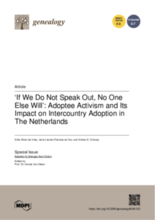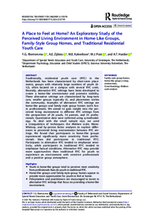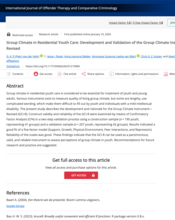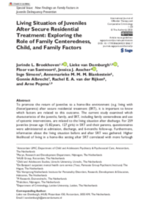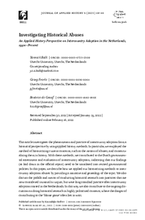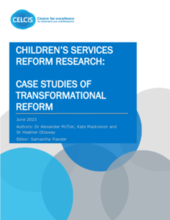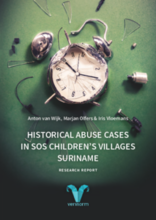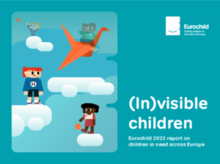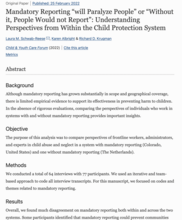Displaying 1 - 10 of 115
This article highlights the role of adoptee activism in raising awareness and changing policy regarding Intercountry Adoption (ICA) in The Netherlands. Through interviews with a selection of adoptees engaged in activism, this study shows that adoptees became engaged in activism as a result of growing adoptee consciousness in combination with encountering irreconciliation; they employed many types of activism, sometimes with different goals and strategies; they cooperated in different constellations and with many allies such as journalists, lawyers and scholars; and their activism had significant impact on general awareness and government policy.
The authors of this study aimed to gain insight into the perceived living environment in different residential youth care settings from the perspectives of 26 youth, 14 parents, and 35 professionals in the Netherlands.
Police start to interview witnesses following Guardian reports on adoptions to the Netherlands nearly 50 years ago
Group climate in residential youth care is considered to be essential for treatment of youth and young adults. Various instruments exist to measure quality of living group climate, but some are lengthy, use complicated wording, which make them difficult to fill out by youth and individuals with a mild intellectual disability. The present study based in the Netherlands describes the development and rationale for the Group Climate Instrument—Revised (GCI-R).
To promote the return of juveniles to a home-like environment (e.g. living with (foster)parents) after secure residential treatment (SRT), it is important to know which factors are related to this outcome. The current study, based in the Netherlands, examined which characteristics of the juvenile, family, and SRT, including family centeredness and use of systemic interventions, are related to the living situation after discharge.
This article investigates the phenomenon and practice of intercountry adoption in the Netherlands from a historical perspective by using applied history methods.
Case studies of transformational reform programmes examined a range of approaches to the delivery of children’s services to better understand the evidence regarding systems-level integration between children’s social work/social care with health services and/or adult social care.
This report comprises of research into cases of historical sexual abuse that took place in the SOS Children’s Village in Suriname. This research covers roughly the period from the early seventies to 2006. The research took place partly in the Netherlands and partly in Suriname.
This report highlights the recommendations and priorities that EU decision-makers and national governments can do to support the most vulnerable children and prevent widening inequalities.
The purpose of this analysis was to compare perspectives of frontline workers, administrators, and experts in child abuse and neglect in a system with mandatory reporting (Colorado, United States) and one without mandatory reporting (The Netherlands).

